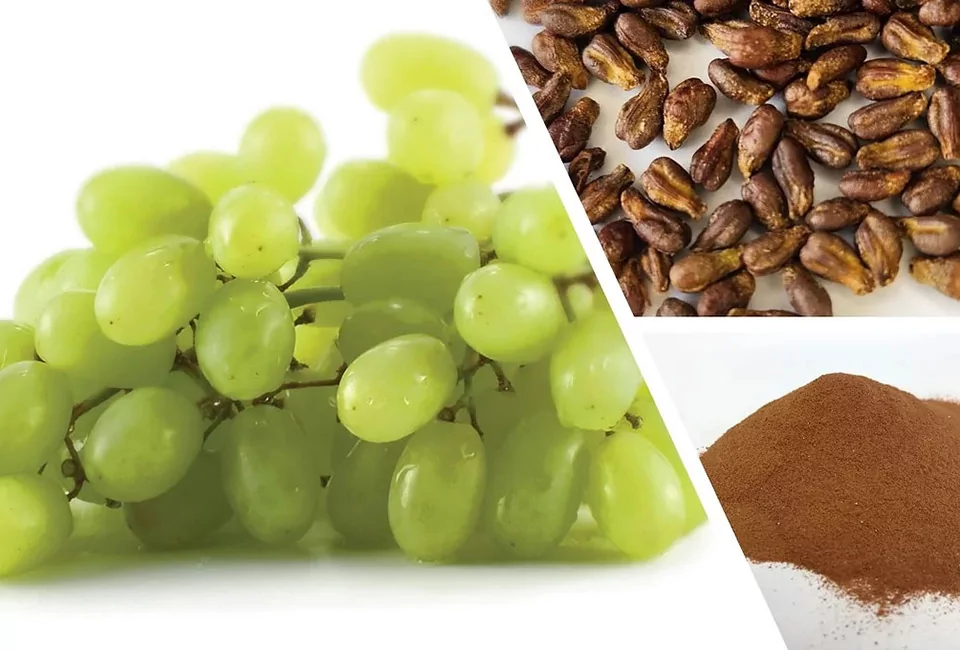ST. JOHN’S WORT
St. John’s wort (Hypericum perforatum) is an aromatic perennial widely used to treat mild to moderate depression. The bright yellow flower of the plant supposedly has its brightest appearance on June 24th, the birthday of St. John, thus giving it his name. Other names for the plant include include “goat weed” or “klamath weed”.
Many of the substances in the brain that are affected by St. John’s wort are neurotransmitters, substances that mediate the signal that is passed from one nerve to another. Depression is thought to result from abnormal neurotransmitter activities. Because several neurotransmitters have been associated with depression, a given treatment may or may not be effective in an individual. There is no way at the present time to determine which neurotransmitter is affected in a given individual. Therefore, St. John’s wort will not be effective for everyone with depression. It generally takes at least four weeks for an improvement in mood to be seen.
The main mechanism by which it was initially thought to function was due its monoamine oxidase inhibitor (MAOI) activity. Monoamines are neurotransmitters and monoamine oxidase inactivates these substances. Due to the fact that multiple compounds with unique activities are present in St. John’s wort, several other activities have been proposed including serotonin reuptake inhibition (similar in action to the Prozac-type drugs), catechol-O-methyl transferase (COMT) inhibition, inhibition of receptors for adenosine and GABA, and increased levels of dopamine, norepinephrine, and the excitatory amino acid glutamate.
Although it has been studied for its activity against various viruses including HIV, there is no evidence that it has antiviral activity. Serious drug interactions between St. John’s wort and HIV protease inhibitors (PIs) and non-nucleoside reverse transcriptase inhibitors (NNRTIs) have been reported that may reduce the effectiveness of anti-retroviral therapy and lead to increased rates of HIV drug-resistance
St. John’s wort can cause gastrointestinal distress, weariness and hypersensitivity reactions. It makes certain people more sensitive to sunburn, and sun exposure should be avoided. Any drug or supplement with sedative properties can be intensified by St. John’s wort, including most antihistamines (present in many cold remedies), kava, valerian and narcotic pain medications. It should not be taken with prescription antidepressants because it increases the potential for side effects. St. John’s wort affects the ability of the liver to metabolize many other drugs. People receiving prescription medications should discuss the potential for an interaction with their physician or pharmacist before beginning St. John’s wort.
Caution should be used when self-medicating for depression, and treatment should be limited to short periods of time. Certain diseases such as thyroid disease and other hormonal abnormalities can cause depression, and this would call for treatment of the underlying disease instead of symptomatic treatment of the depression. Depression can also be caused by certain prescription medications. A physician should always supervise treatment of serious forms of depression.
FLAXSEED
Flaxseed or linseed comes from flax, a blue flowering crop. More than half of the fat in flaxseed is an omega-3 fatty acid, and therefore it has some properties in common with fish oil.
Flaxseed is high in both soluble and insoluble fiber. Most of the soluble fiber in flaxseed is mucilage. The soluble fiber is associated with a cholesterol lowering effect. Insoluble fiber is useful as a bulk laxative and in the prevention of constipation. The insoluble fiber has the tendency to hold water, softening the stool and allowing it to move through the colon more quickly. Flaxseed should be taken with ample fluids in order to prevent constipation or blockage of the intestine.
Flaxseed also contains lignans. Bacteria in the digestive tract metabolize lignans into hormone-like substances. These compounds possess estrogenic, antiestrogenic, antiproliferative and antioxidative properties and may be capable of blocking the action of certain cancer-causing substances in the body. Studies on the cancer preventive effects of lignans and the omega-3 fatty acids are currently underway.
KAVA
Kava or Kava kava is a bitter herb that comes from the Piper methysticum plant, a member of the black pepper family. It has been used as natural relaxant, and as an important part of religious and ceremonial activities for thousands of years. It is commonly used in Europe for the treatment of nervous anxiety, stress, and restlessness.
The root of the plant contains multiple biologically active compounds including kavalactones. Some of the compounds act at the receptors for several neurotransmitters (substances that carry a signal from one nerve to the next) including GABA and serotonin. They may also interfere with the activities of the neurotransmitters dopamine and norepinephrine. Some of the components of kava have demonstrated anti-seizure activity and it may protect nerve cells from damage by blocking activity at some excitatory receptors in the brain, the NMDA receptors. Kava has local numbing, pain relieving and skeletal muscle relaxing activities in animals.
The results of long term kava use are not known but it can be habit forming. It can cause drowsiness, and impair reflexes and the ability to drive a motor vehicle. It can also cause gastrointestinal symptoms, headache, dizziness and allergic reactions. High dose consumption for prolonged periods is associated with multiple side effects, some of which are serious. Kava should not be used by people with depression or in combination with sedative drugs including alcohol, antidepressants or narcotics. It should not be used by pregnant or lactating women or by children.
SAW PALMETTO
Saw Palmetto comes from the partially dried, ripe fruit of Serenoa repens, a palm plant. It is often used to reduce the symptoms of benign prostatic hypertrophy (BPH), an enlargement of the prostate that frequently occurs in middle age and senior age men. Symptoms of BPH include difficult urination and the frequent urge to urinate. BPH can result from increased production of the hormone dihydrotestosterone (DHT) from the less potent testosterone. Saw palmetto prevents the increase in DHT and also blocks its activity. The berries appear to have anti-inflammatory activity and to block swelling as a result of decreased synthesis of certain prostaglandins and leukotrienes.
Benign prostatic hypertrophy should not be self-treated. It may delay the detection of other serious problems such as prostate cancer or other urinary tract disease. Although saw palmetto appears to be safe for short term treatment, long term studies have not been conducted. The most frequent complaint associated with its use is headache, but it can also cause gastrointestinal side effects such as gastric upset and diarrhea. It should not be used by women or children.
GRAPE SEED EXTRACT
Grape seed extract has a very high level of antioxidants. These compounds, the proanthocyanidins, are bioflavenoids which, along with other antioxidants such as vitamins C, convert free radicals into safer, less reactive molecules. An excess of free radicals are associated with many diseases. Some cosmetic companies are incorporating grape seed extract into their topical skin treatment formulas.
Most of the benefits of grape seed extract have been demonstrated in laboratory animals or in cultured cells. For example, the ingestion of grape seed extract by rabbits fed a high cholesterol diet appeared to have an inhibitory effect on atherosclerosis associated with inhibition of LDL oxidation. Grape seed extract selectively killed two human oral cancer cell lines, more efficiently than human oral normal cell lines. Grape seed extract provided better protection on factors such as lipid peroxidation (involved in atherosclerosis), DNA damage and cell death to a type of oral cells in culture than vitamins C and E, when exposed to tobacco extract.
Although preliminary studies indicate a beneficial effect of grape seed extract for vascular disease and a preventive effect for some cancers, much more research is needed before it is recommended as a supplement.







1 Comment
Fantastic article! So glad I found this.